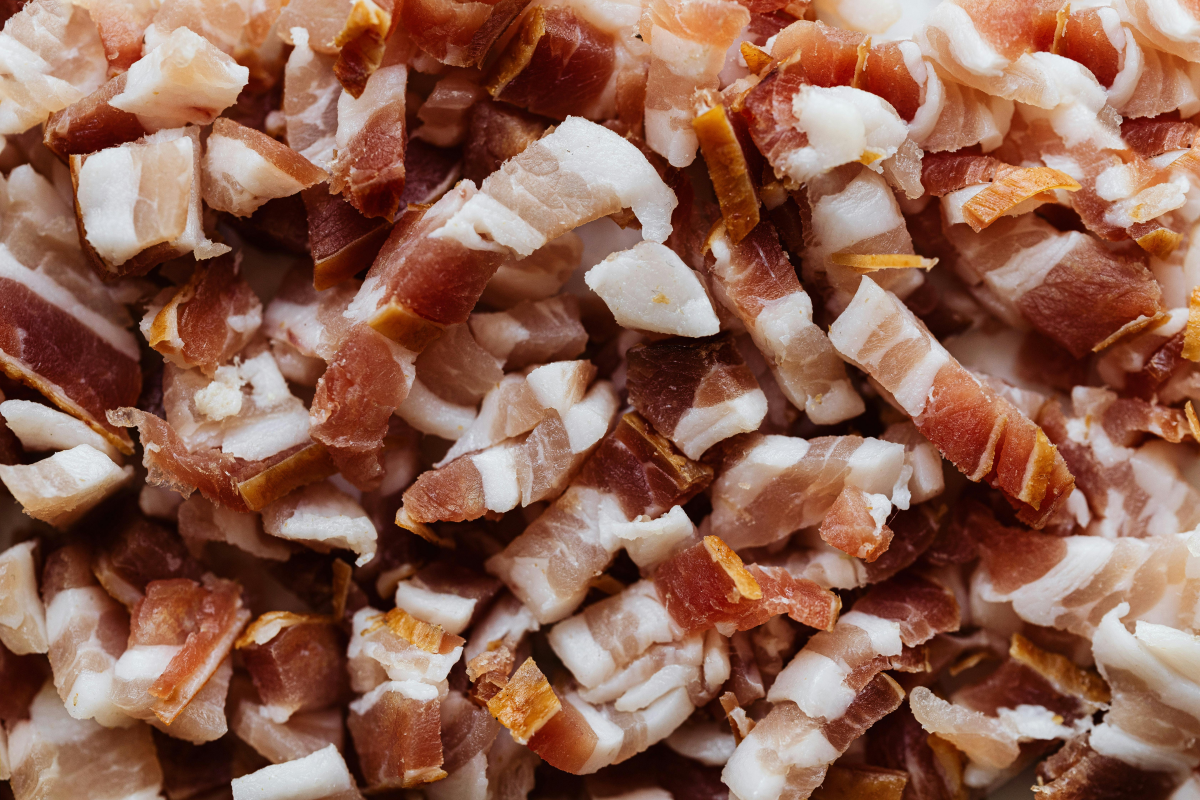Can You Freeze Bacon? Here Is Everything You Need To Know
Not long ago, I was standing in the kitchen, staring at a heap of bacon cooking on the stove. On a Sunday morning, I was determined to cook a whole pack for a big breakfast with my family. As the house filled with the wonderful smell, I realized I may have gone a little too far. We tried really hard, but we just couldn’t finish all the bacon. I looked at my plate full of tasty, crispy bacon and asked myself, “What should I do with all this extra bacon?” Then I thought, “Can you freeze bacon?” I dove headfirst […]

Not long ago, I was standing in the kitchen, staring at a heap of bacon cooking on the stove. On a Sunday morning, I was determined to cook a whole pack for a big breakfast with my family. As the house filled with the wonderful smell, I realized I may have gone a little too far. We tried really hard, but we just couldn’t finish all the bacon. I looked at my plate full of tasty, crispy bacon and asked myself, “What should I do with all this extra bacon?” Then I thought, “Can you freeze bacon?” I dove headfirst into the realm of bacon preservation in my quest to discover the answer. There is no doubt that the answer is yes! So, let’s explore everything you need to know about freezing bacon, from the best ways to do it to the pros and cons. Let’s get started.
Freezing bacon saves time and money
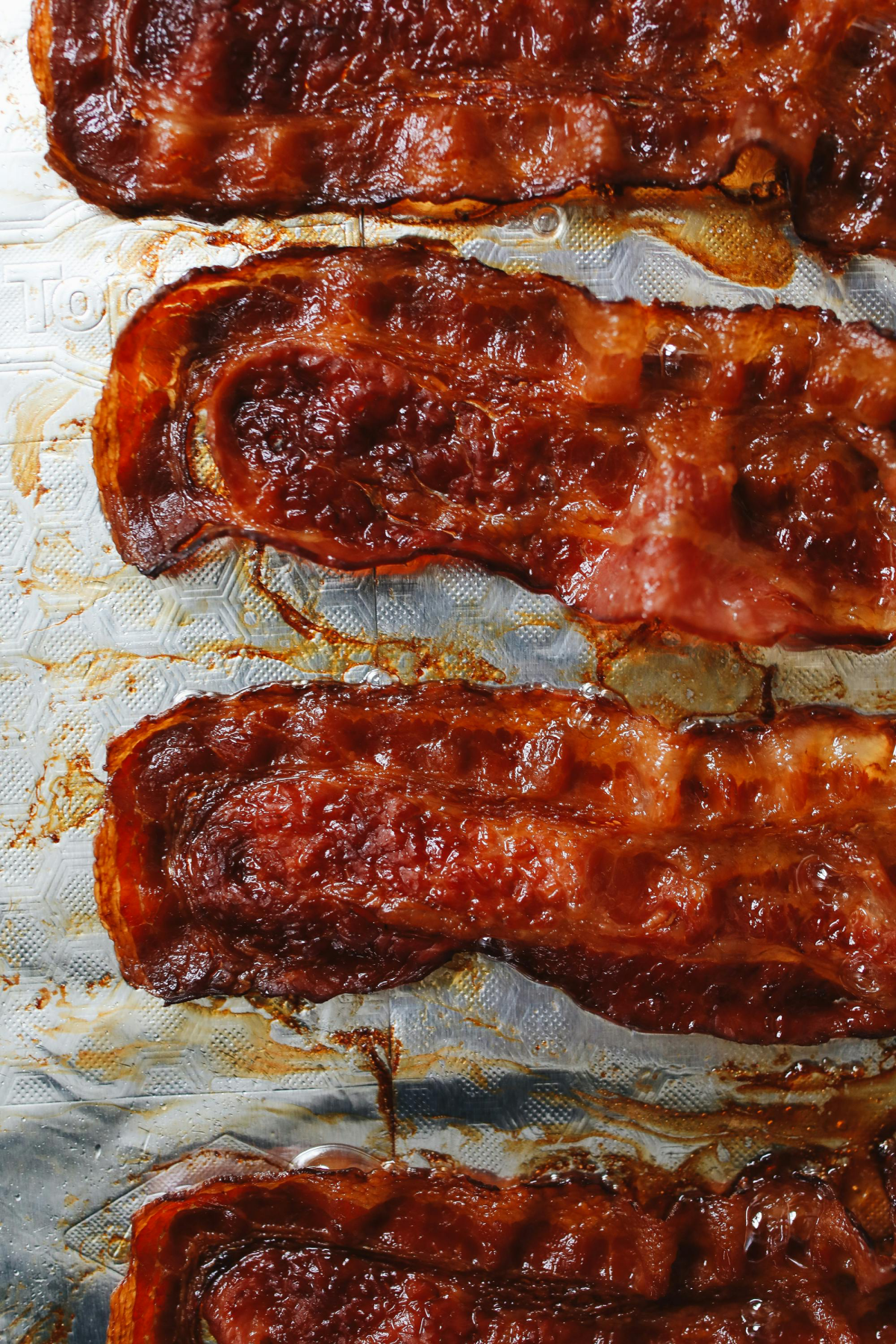
Can You Freeze Bacon?
Yes, you can freeze bacon! You can save time and money by freezing bacon. This way, you’ll always have this versatile food on hand for quick meals. By purchasing bacon in bulk during sales, you may significantly save money while also reducing waste by increasing its shelf life. “Properly stored frozen bacon retains its flavor and texture remarkably well,” says famous chef Gordon Ramsay. This makes it a great choice for busy mornings or for adding a savory, smoky touch to different dishes. With this method, you can have bacon that is already cut up and ready to use in meals, sandwiches, salads, or casseroles without having to make a lot of trips to the store. For a good mix of convenience, cost savings, and flavor retention, freezing bacon is a smart move backed by chefs.
Bulk buying bacon during sales reduces grocery costs

Preparing Bacon For Freezing
To keep the taste and texture of the bacon, it’s important to prepare it the right way before freezing it. These are the steps you need to take:
- Choose high-quality bacon that doesn’t have a lot of fillers or preservatives. Fresh bacon that hasn’t been cured tends to freeze better and keep its taste longer.
- Divide the bacon into the portions that you normally use. This helps you thaw only what you need, which cuts down on waste.
- Place the bacon pieces on a baking sheet that has been lined with parchment paper so that they don’t stick together. Put the baking sheet in the freezer for a few hours until the slices are hard. Once the slices are frozen, you can stack them and put them in a bag or container that can go in the freezer.
- Vacuum sealers are the best way to get rid of as much air as possible. You can use heavy-duty freezer bags. Make sure to squeeze out as much air as you can before closing them if you don’t have a vacuum sealer.
Chef Gordon Ramsay says frozen bacon retains its flavor well
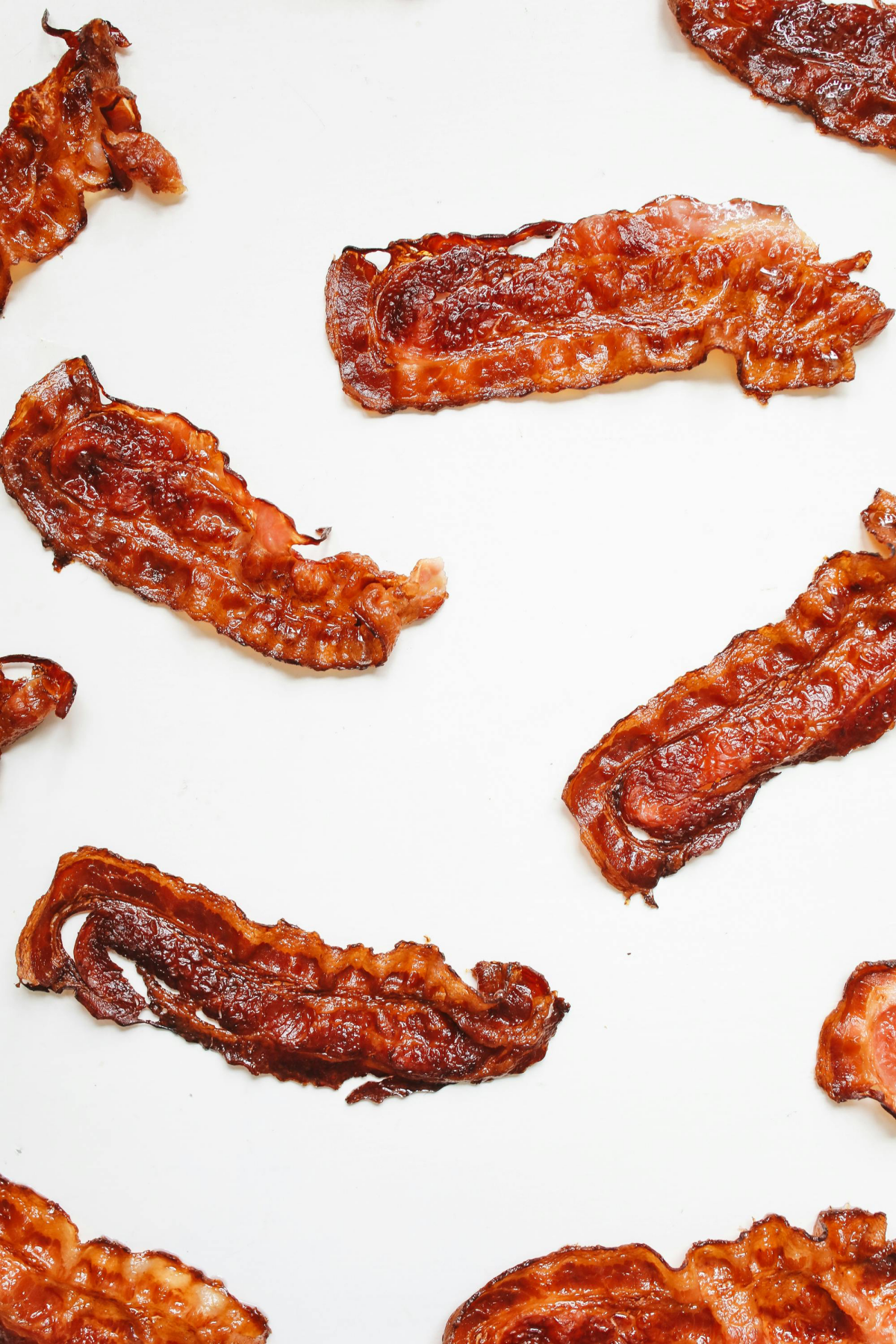
How To Freeze Cooked Bacon
Cooked bacon can also be frozen for added convenience, allowing you to keep ready-to-eat bacon on hand for quick dinners and dishes. Here is how to do it:
- Cook the bacon until it’s as crispy as you like it. Let the bacon cool all the way down before moving on to the next step. This process of cooling is very important because it keeps condensation and ice from forming when it freezes.
- Blot the cooked bacon with paper towels to get rid of any extra grease. Getting rid of as much grease as you can helps the bacon stay crispy when it thaws. This step is very important to keep the thickness of the bacon and keep it from sticking together.
- Place the bacon strips on a baking sheet that has parchment paper on it. Put them in a single layer so they don’t touch. Freeze the baking sheet for one to two hours. By flash freezing the bacon, it gets firmer and the strips don’t stick together, which makes it easier to handle and package.
- Once the bacon strips are hard and mostly frozen, put them in a bag or container that can go in the freezer. Place parchment paper between each layer of bacon to keep the strips from sticking together when you stack them. You can then take out only what you need without having to thaw the whole batch. Make sure the bag or container is tightly sealed so that air doesn’t get in and cause freezer burn.
Choose high-quality bacon for freezing

How To Thaw Frozen Bacon
Refrigerator thawing
Putting bacon in the fridge to thaw is the best way to do it. Even though it takes longer (usually overnight), this way makes sure that the bacon thaws properly and stays safe to eat. The bacon only needs to be moved from the freezer to the fridge and left there to slowly thaw. This is the best way to keep the texture and taste of the bacon.
Cold water thawing
Putting the bacon in a bowl of cold water will help it thaw faster. Replace the water every 30 minutes until the bacon is thawed. Most of the time, this method takes two hours. Make sure the bacon is in a leak-proof bag to prevent water from sneaking in and damaging the quality of the bacon.
Microwave thawing
You can use your microwave’s defrost setting if you need to get something done quickly. Watch out with this method, because it can make the bacon cook while it’s still in there. Check on and turn the bacon often to make sure it thaws evenly. This is the fastest way to defrost it, but it also comes with the most risk because the cooking process could begin too soon.
Portion bacon before freezing to avoid waste
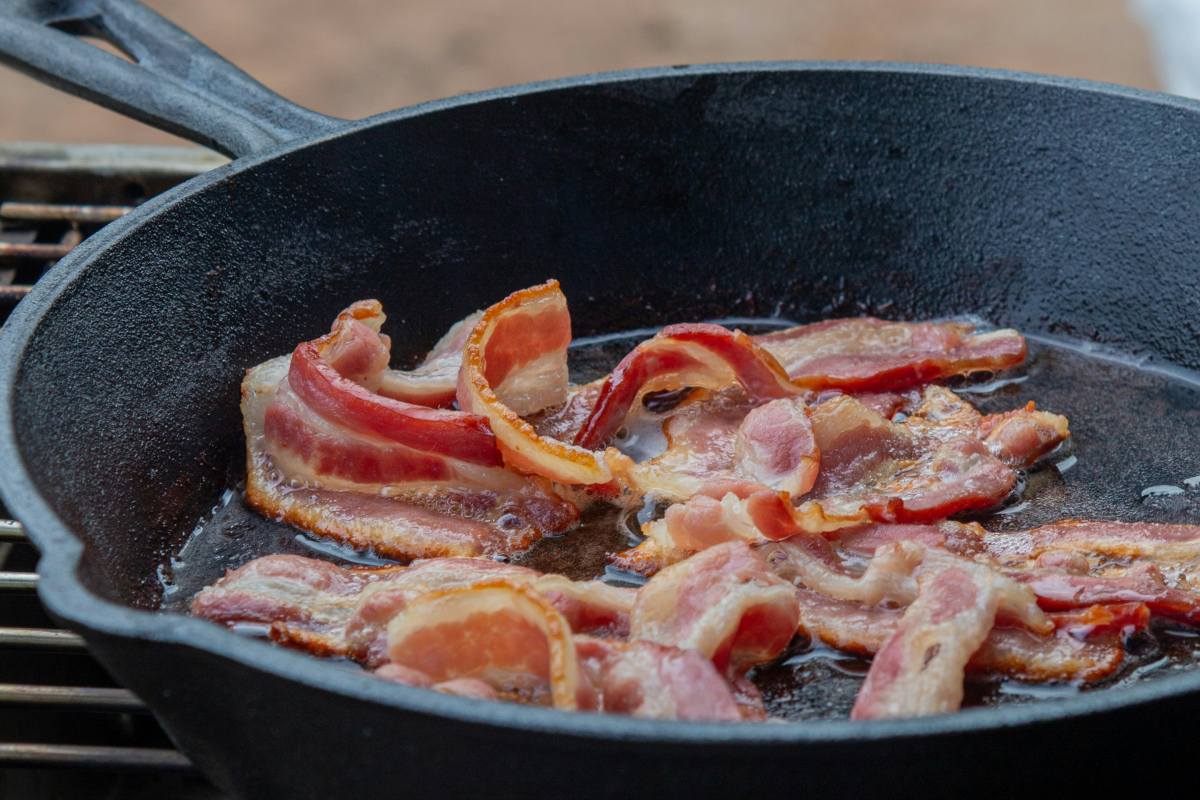
How Long Does Frozen Bacon Last?
Bacon can be frozen for up to six months without losing much of its quality if it is kept in the right way. Cooked bacon should be used within two months to keep its best taste and structure. To avoid freezer burn, properly store items in high-quality freezer bags or vacuum-sealed packaging. Mark your packages with the date they were frozen so you can keep track of how long they’ve been stored. This keeps the bacon from going bad by making sure the oldest pieces are used first. You should check your freezer often to make sure you’re eating your bacon at the right time for the best taste and texture.
Flash freeze bacon slices to prevent sticking
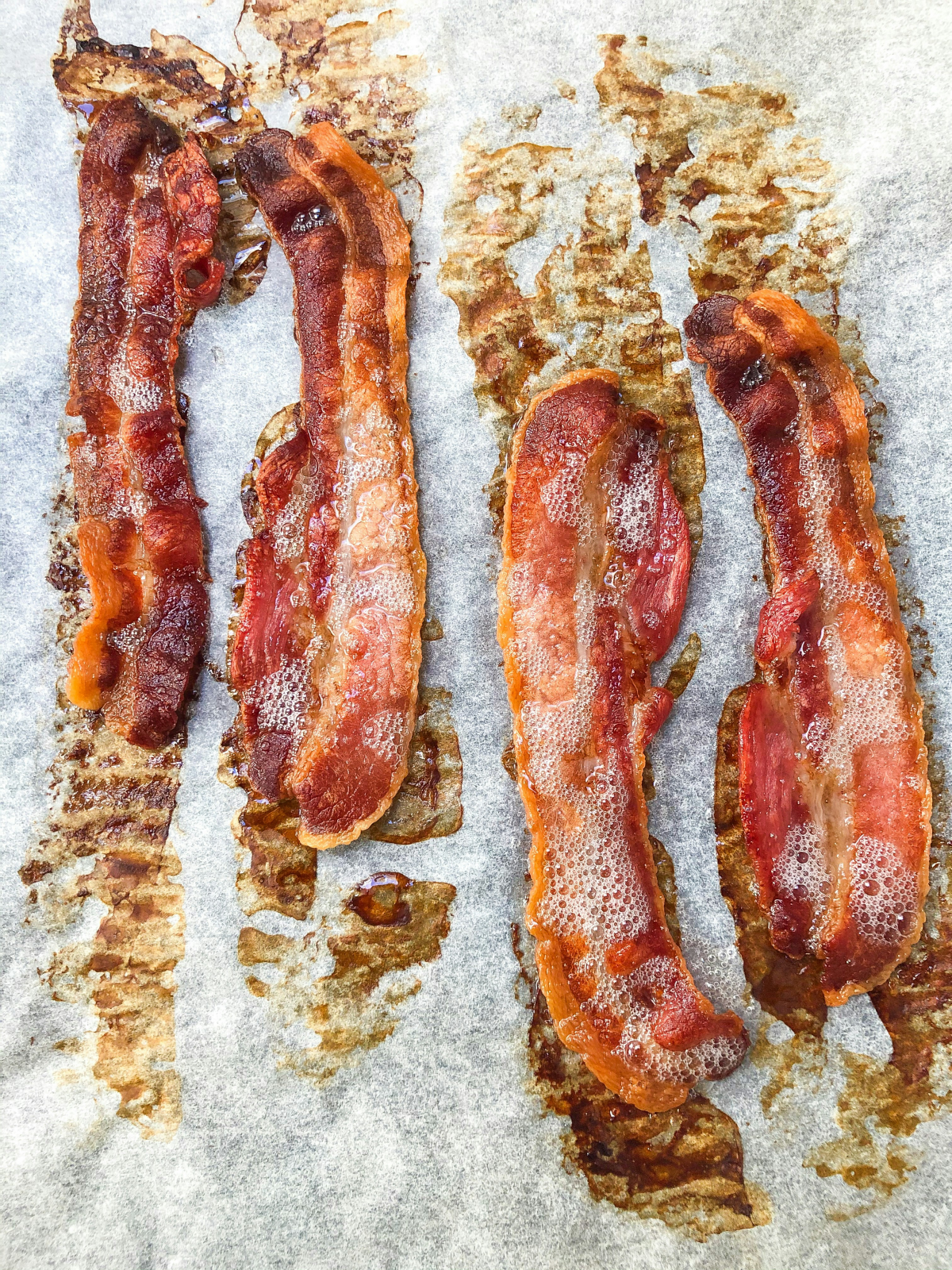
Pros and Cons of Freezing Bacon
Pros:
- Convenience: By keeping bacon in your freezer, you can quickly make a tasty meal without having to go to the store. This is especially helpful on busy mornings or when people show up out of the blue.
- Cost-effective: When bacon is on sale, buying it in bulk can help you save a lot of money on your food bills. Most of the time, buying in bulk costs less per unit, which saves you money over time. By freezing these large purchases, you can take advantage of sales and deals without having to worry about the bacon going bad before you can use it all.
- Waste reduction: You can freeze bacon leftovers for later use instead of putting it away because it might go bad in the fridge. This not only saves money but also helps the environment by reducing the amount of food that is wasted.
Cons:
- Texture changes: One big problem with saving bacon is that it might not be as crisp after being frozen and then thawed. The structure of the meat can change as ice crystals form, which can change the taste. That being said, this can be lessened by using the right freezing methods.
- Freezer burn: When bacon is packaged incorrectly, it can get freezer burn, which can ruin its taste and texture. When air touches food in the freezer, it dries out, which is called freezer burn. This can make it feel like leather and taste bad.
Undercook bacon before freezing for perfect reheating
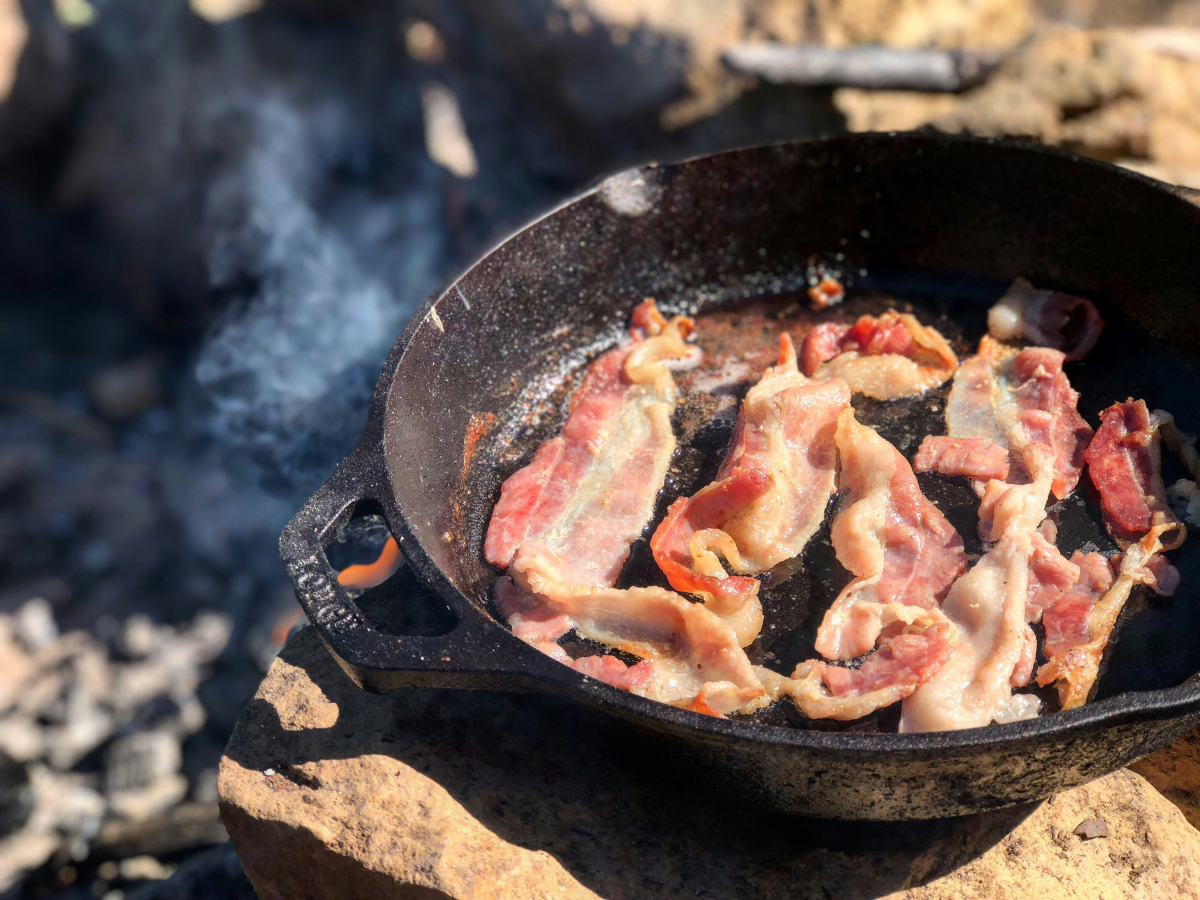
Useful Tips For Freezing Bacon
Write the date
Mark your packages with the date they were frozen so you can keep track of how long they’ve been stored. This is very important for maintaining the quality and safety of your bacon. If you remember exactly when you froze the bacon, you can make sure you use it within the best time frame, which is usually up to six months. Labeling your food correctly helps you keep track of what’s in your fridge and keeps any packs you forget about from sitting there for too long and going bad.
Use quality packaging
To keep food from freezer burn, buy good freezer bags or a vacuum sealer. When food is exposed to air, it dries out and gets a bad texture and taste, which is called freezer burn. Good freezer bags with a tight seal can keep air and moisture out, which preserves the bacon’s taste and texture. A vacuum sealer works even better because it removes all the air from the package. This makes the bacon last even longer.
Don’t refreeze
To keep the quality of the bacon, don’t refreeze it after it has already been thawed. The process of freezing and thawing bacon breaks down the meat’s structure and makes ice crystals. This can cause big changes in the texture and taste of the bacon. Once the bacon has thawed, it should be used within a few days to keep it fresh and tasty. Carefully planning your amounts can help you thaw only what you need, so you won’t have to freeze it all again.
Plan ahead
In order to make reheating and making meals easier, freeze bacon in portions that fit your cooking needs. Instead of freezing the whole package of bacon, cut it up into smaller pieces that are about the right size for a meal. This way you can thaw just the right amount so you don’t have to deal with extra food. You can quickly get what you need from the freezer and start cooking when you portion your food. This also speeds up the freezing process.
Use parchment paper
You could use parchment paper to separate the bacon pieces before you freeze them. By putting parchment paper between bacon pieces or small stacks, you can keep them from sticking together. With this method, it’s easy to get just the right amount without having to thaw the whole lot. Just lay the bacon slices out flat on a parchment paper sheet, then add another sheet on top, and stack the bacon again.
Undercook the bacon
If you want to freeze cooked bacon, you might want to cook it a little less than you want to. Cook the bacon until it’s almost done. When you heat the bacon again later, it will finish cooking, giving you the perfect crispy texture without the risk of cooking it too much. This way of reheating bacon makes sure that it keeps its great taste and texture.
Thaw bacon in the fridge overnight for best results
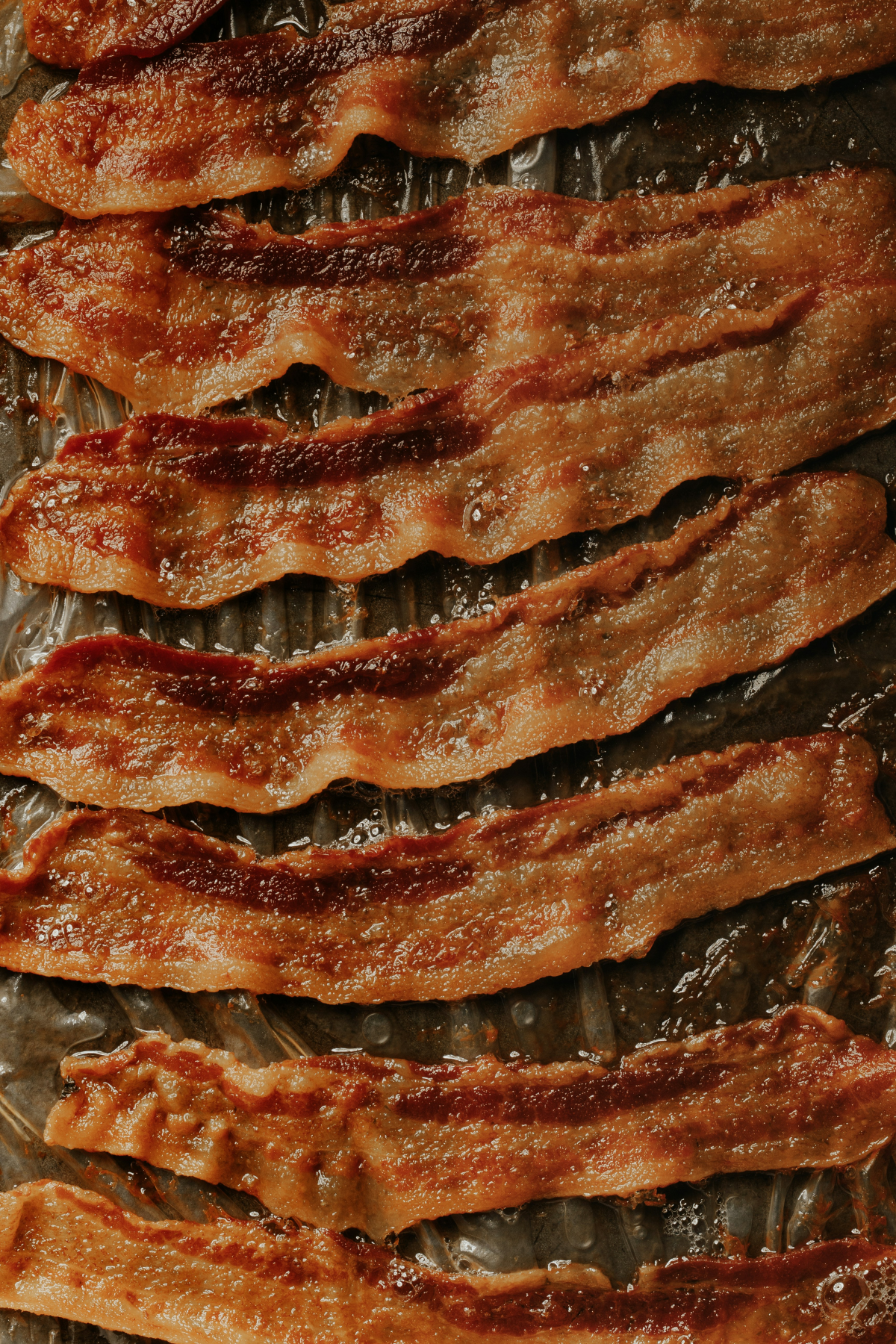
Freezing bacon is a useful way to make sure you always have this tasty food on hand and extend its shelf life. By doing things the right way, you can freeze and thaw bacon so that it tastes and feels just like fresh bacon. Whether you’re saving cooked or raw bacon, how you prepare and store it is very important. Now that you know these tricks, you’ll be able to freeze bacon well and have it ready whenever you need it. Have fun freezing!
Frozen bacon lasts up to six months if stored correctly
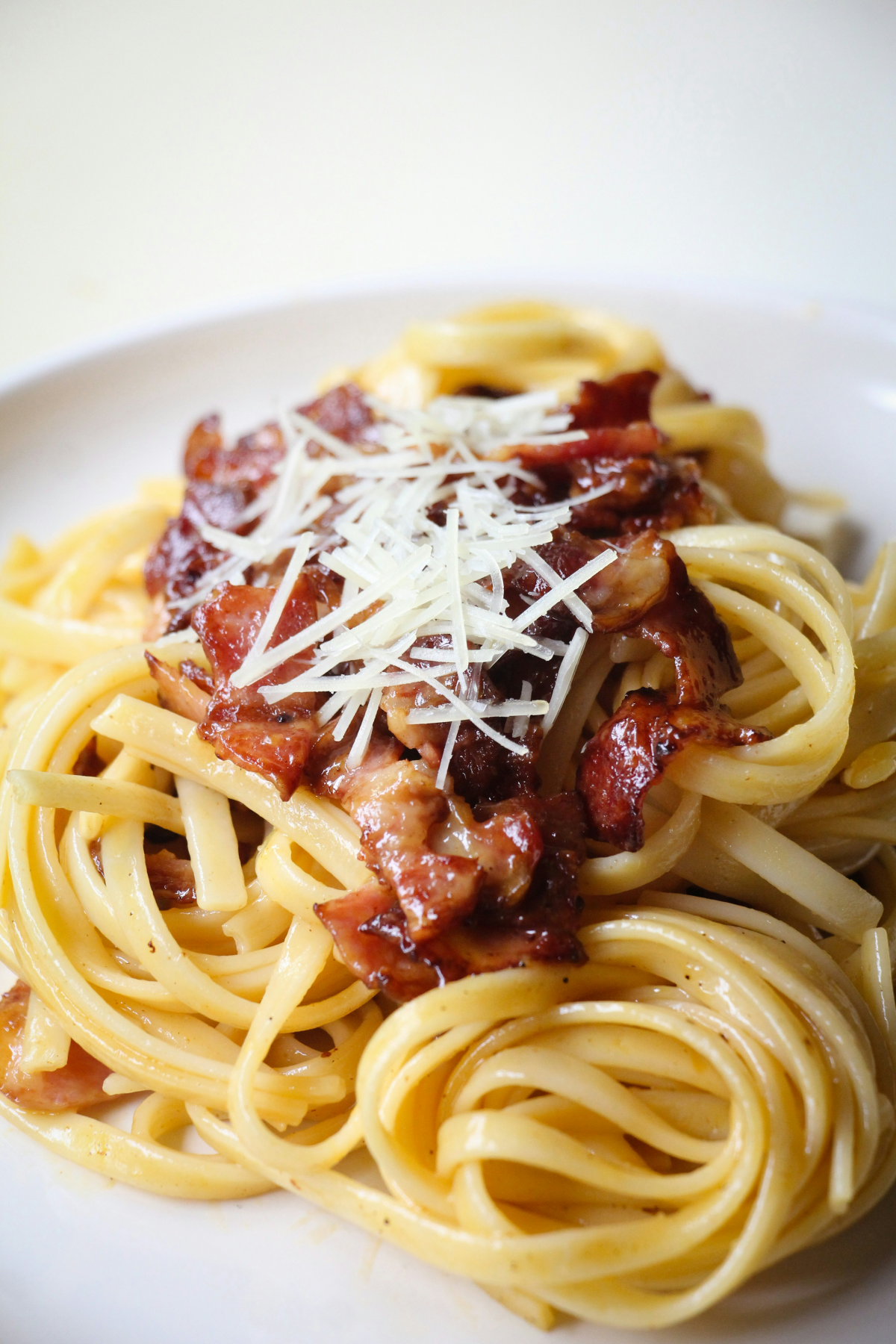
FAQs
Can you freeze bacon in its original packaging?
Even though you can freeze bacon in its original package, it’s not the best idea. Most of the time, the original packaging doesn’t keep air out, which can cause freezer burn. It’s better to put the bacon in a heavy-duty freezer bag that has been vacuum-sealed or has had the air sucked out of it.
Can you freeze turkey bacon?
Yes, you can freeze turkey bacon in the same way that you freeze regular bacon. To keep them from sticking and getting freezer burn, make sure to separate the slices and package them correctly.
Can you freeze bacon bits?
You can freeze bacon bits that have been cooked. Spread them out on a baking sheet to freeze one at a time before putting them in a bag or container that can go in the freezer. As needed, use them right from the freezer.
Label packages with the freezing date to track storage time
